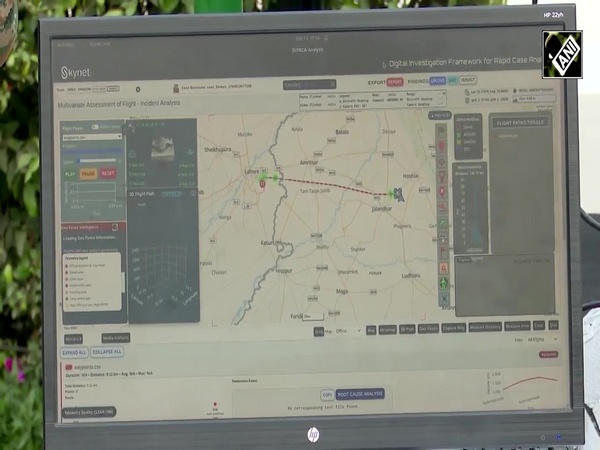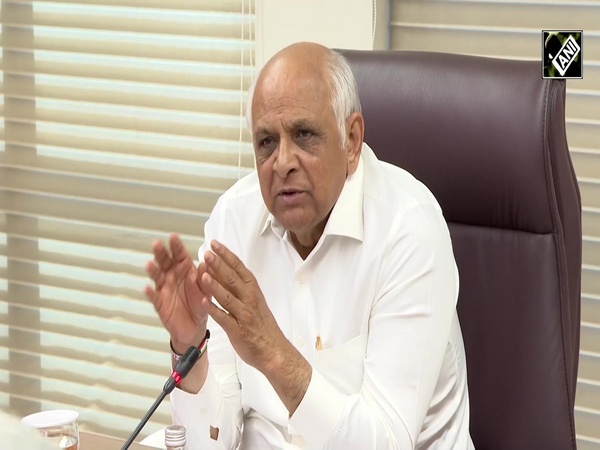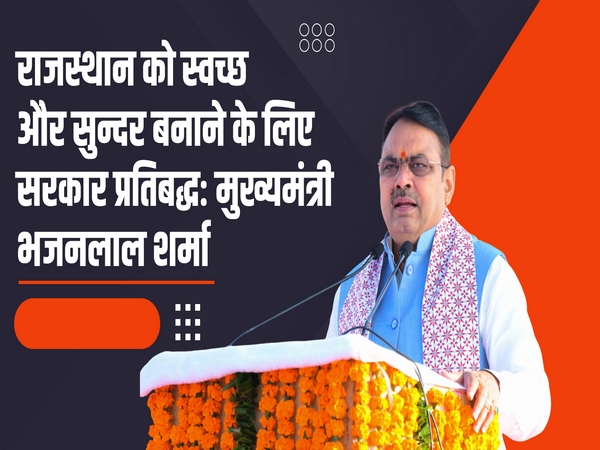Waste management a significant challenge for India and World: World Bank
Oct 31, 2023

New Delhi [India], October 31 : Waste management poses a significant sustainability challenge, not just in India but globally. The World Bank's recent Commodity Markets Outlook sheds light on the pressing issue of waste generation and its far-reaching impacts on society, the economy, and the environment.
As the global average of waste per capita reached 376 kilograms in 2020, cities worldwide face an urgent sustainability challenge, with India at the forefront of addressing this issue.
In a world where Sustainable Development Goal (SDG) 11 aims to make cities and communities inclusive, safe, resilient, and sustainable, rising waste, especially in the form of plastics, is emerging as a critical concern. The report highlights the striking fact that in 2020, the average person generated approximately 376 kilograms of waste, which is approximately six times the weight of an average individual.
Waste management is not just a local concern; it has global ramifications. As indicated by SDG 3, waste is a substantial contributor to greenhouse gas emissions. It also leads to land degradation, and water pollution (SDG 15), and exacerbates the already concerning issues of landfills and incineration (SDG 14).
The report emphasizes the need for proper waste collection and management to avoid adverse health and environmental impacts.
The United Nations SDG 11 aims to make cities inclusive, safe, resilient, and sustainable. However, the rise in waste generation, especially plastics, poses a significant obstacle to achieving this goal.
However, it's important to note that a country's waste output is not a simple reflection of its population size. The United States, with about 5 per cent of the global population, generates approximately 14 per cent of the world's waste.
Adjusting these figures for population, it's evident that some small island nations produce more waste per capita due to high population density and urbanization, which often leads to higher material consumption and more waste.
This municipal solid waste, often referred to as waste, is a direct by-product of material consumption, and how it's managed significantly affects public health, the environment, and economic aspects.
In 2020, an average person generated waste equivalent to six times their body weight. This unsustainable level of waste production has far-reaching consequences, impacting not only human health but also the environment.
Mismanaged waste contributes to unhygienic conditions, greenhouse gas emissions (SDG 3), land and water pollution (SDG 13 and SDG 15), and poses a severe challenge to achieving SDG 14's goal of preserving marine ecosystems.
The World Bank's report foresees a significant challenge. The expected global population increase, along with rising income levels and urbanization, will lead to a considerable growth in waste generation.
Waste is estimated to nearly triple the rate of population growth, growing from 2.2 billion tonnes in 2020 to 2.8 billion tonnes by 2030 and reaching 3.9 billion tonnes by 2050.
India, with its rapidly growing population and urbanization, is acutely aware of this problem. The country generated 700 kg of waste per capita in 2020, putting it among the nations facing a significant waste management challenge.
With its commitment to the SDGs, India has been actively working on addressing this challenge and finding sustainable solutions.
One of the key aspects of India's approach is recognizing the importance of effective waste management for achieving SDG 11.6 - avoiding adverse health and environmental impacts.
Low-income countries typically spend about USD 35 per tonne on waste management, while high-income countries may spend close to USD 100 per tonne. Given the income disparities, municipalities in low-income countries allocate a significant portion of their budgets to waste management.
India acknowledges the link between waste and income levels. While wealthier countries generate more waste, there is a point at which consumption and waste generation growth slows down. India recognizes the need to balance economic growth with sustainable waste management practices.
The future of waste is a growing concern for India and the world. The expected population growth, urbanization, and income increase predict that waste production will nearly triple the rate of population growth.
India is taking steps to manage this growth through efficient waste collection and disposal, and by exploring options for recycling and waste-to-energy solutions.
However, India faces the same challenges as many other countries. Proper waste management can be costly, especially for low-income nations. Despite limited resources, India is working towards subsidizing waste management and increasing user fee collections to ensure the costs are covered.
The COVID-19 pandemic has added a new layer to this challenge. India, like many other countries, saw an increase in waste due to the use of disposable products, including face masks and medical waste. These additional waste streams must be addressed in a sustainable manner to prevent further harm to the environment.
With a strong commitment to addressing these challenges, India is actively working to meet the UN's Sustainable Development Goals, particularly focusing on SDGs 11, 13, and 14.
As India continues to urbanize and grow, its innovative and sustainable approaches to waste management will play a crucial role in shaping a cleaner, greener, and more sustainable future for its cities and communities.
India's perspective on the global waste issue is not just one of concern but also of determination, as the country strives to lead the way in achieving a more sustainable and waste-responsible future.
As India and other nations grapple with the growing challenge of waste management, addressing these issues is essential not only to protect the environment but also to ensure the well-being of communities, the health of our oceans, and the sustainability of future generations.

















